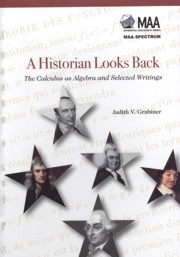Book contents
- Frontmatter
- Contents
- Introduction
- Part I The Calculus as Algebra
- Preface to the Garland Edition
- Acknowledgements
- Introduction
- 1 The Development of Lagrange's Ideas on the Calculus: 1754–1797
- 2 The Algebraic Background of the Theory of Analytic Functions
- 3 The Contents of the Fonctions Analytiques
- 4 From Proof-Technique to Definition: The Pre-History of Delta-Epsilon Methods
- Conclusion
- Appendix
- Bibliography
- Part II Selected Writings
- Index
- About the Author
Introduction
from Part I - The Calculus as Algebra
- Frontmatter
- Contents
- Introduction
- Part I The Calculus as Algebra
- Preface to the Garland Edition
- Acknowledgements
- Introduction
- 1 The Development of Lagrange's Ideas on the Calculus: 1754–1797
- 2 The Algebraic Background of the Theory of Analytic Functions
- 3 The Contents of the Fonctions Analytiques
- 4 From Proof-Technique to Definition: The Pre-History of Delta-Epsilon Methods
- Conclusion
- Appendix
- Bibliography
- Part II Selected Writings
- Index
- About the Author
Summary
The eighteenth century was an age in which the power of the human mind seemed unlimited. Philosophers believed that they had discovered the nature of human understanding; scientists or “natural philosophers,” that they had found the basic laws of the cosmos; observers of society thought that they knew the principles on which government was based. Human history was expected to show perpetual progress in the future.
Such predictions were not made merely out of optimistic desire; they were based on the real success that men saw had been achieved by the sciences. The science whose success most captured the imagination was mathematical physics. Newton's Philosophiae Naturalis Principia Mathematica had made universal the view that the cosmos is a machine working according to principles understood by the human mind. Mathematics had been established as the appropriate language in which to describe these principles. Newton and Leibniz had invented a new branch of mathematics, the calculus, which was ideal for expressing and extending the Newtonian physics. The calculus itself was developed further, into a collection of techniques and results which staggers the imagination.
The mathematicians of this time were men of the world. From the Encyclopédie to the Lettres à une princesse d'Allemagne of Leonhard Euler, from Gaspard Monge's educational projects to Pierre Simon Laplace's Essai philosophique sur les probabilités, the mathematicians provided essential components of the Enlightenment that went beyond their technical achievements.
By contrast, “Je ne sais pas” was the statement most often attributed to Joseph-Louis Lagrange. How is such a spirit to be reconciled with that of the Enlightenment? If ever an eminent eighteenth century mathématicien lived in an ivory tower, it was Lagrange.
- Type
- Chapter
- Information
- A Historian Looks BackThe Calculus as Algebra and Selected Writings, pp. 9 - 16Publisher: Mathematical Association of AmericaPrint publication year: 2010



